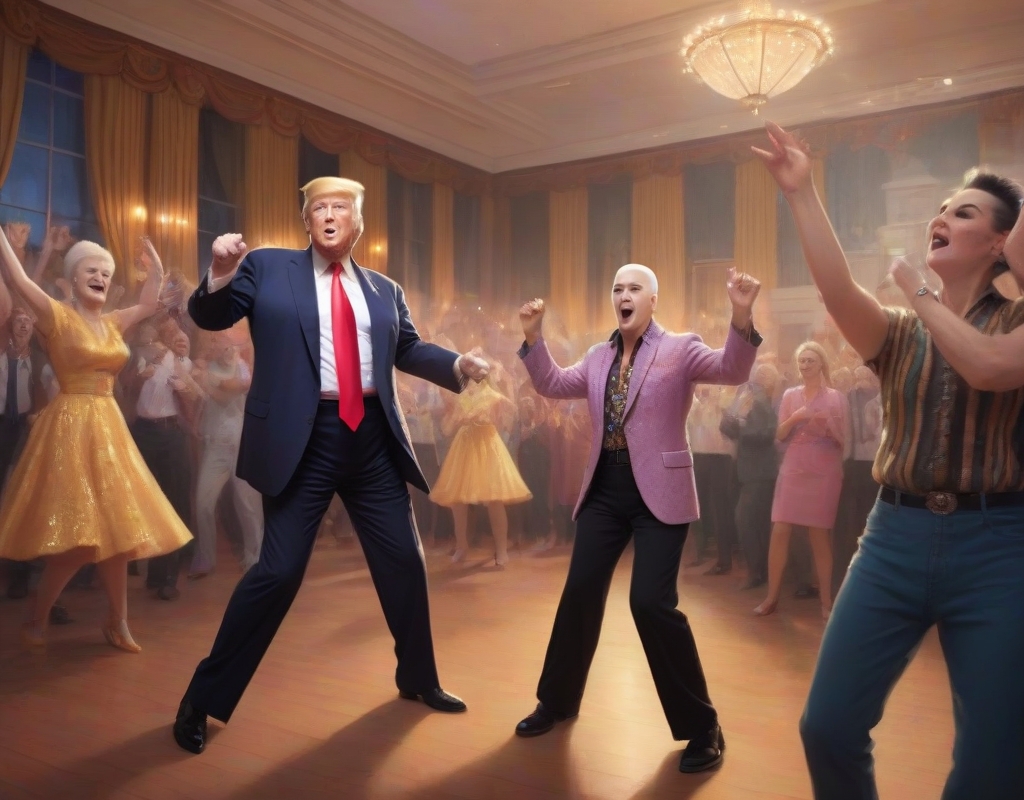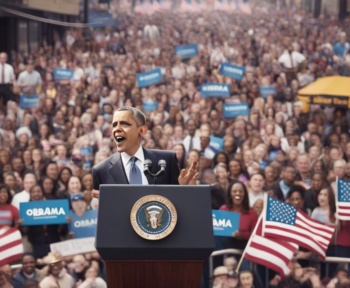At a recent town hall event in Pennsylvania, former President Donald Trump took a surprising detour from the typical Q&A format, turning the session into a 40-minute musical revelry instead. The event, initially intended as a forum for voter interaction, veered off course after an interruption caused by two attendees fainting. Trump jokingly asked if anyone else felt faint and suggested skipping the questions entirely in favor of music, quipping, “Who really wants to hear questions anyway?”
South Dakota Governor Kristi Noem, who moderated the event, watched as Trump played a selection of his favorite tunes, including hits by Elvis Presley and Sinéad O’Connor. The mood shifted to that of a party, with the former president dancing and attendees capturing the moment on their phones. The campaign later branded the gathering as a “Love Fest,” indicating that the impromptu concert was meant to express affection and gratitude to the supporters present.
Responses to Trump’s approach were mixed, drawing both amusement and concern. On one end, critics argued that this behavior indicated a decline in his mental sharpness. Whoopi Goldberg aired her worries on a popular talk show, while Alyssa Farah Griffin remarked on Trump’s seemingly unnoticed issues compared to the focus on President Joe Biden’s age and potential second term.
A defense from Trump’s campaign came through spokesperson Steven Cheung, who described the event as a blissful celebration that affected the crowd to the point of fainting from excitement. Cheung’s statements aligned with a narrative that frames the event positively, emphasizing the joy it brought to participants.
This town hall was consistent with Trump’s history of diverging from structured speeches to indulge in spontaneous performances, a tendency that raises concerns about his focus and adaptability. Vice President Kamala Harris’s campaign also chimed in, with Harris herself posting concerns about Trump’s grasp on reality, highlighting ongoing debates over his suitability for leadership.
Interestingly, the town hall could have addressed serious topics like climate change and healthcare, especially relevant given the venue’s overheating, but these issues were sidelined in favor of entertainment, sparking further debate about Trump’s priorities.
Pennsylvania’s importance as a key swing state in the upcoming election adds another layer to the event’s significance. With 20 electoral votes at stake, Trump’s campaign appears focused on creating memorable, albeit unconventional, moments to garner voter affection.
How these strategies will affect the upcoming election remains to be seen. Trump’s campaign continues to highlight these events as “Love Fests,” aiming to project a positive image. However, the public’s reaction to these deviations from traditional campaigning could heavily influence their views on Trump’s capability to govern effectively. As the election nears, observing how these events sway voter opinions will be critical in assessing their impact on the political landscape.




